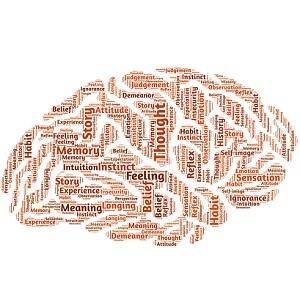rTMS Used in Scientific Research on Language
January 25, 2017 - Smart TMS

rTMS (Repetitive Transcranial Magnetic Stimulation) is best known as an innovative and effective treatment for clinical depression.
However, the technology, which works on the brain using magnetic impulses, has other uses too. A team of researchers based in Denmark recently used rTMS to explore the association between language comprehension and motor brain structures.
rTMS in Research Study
Researchers based at the Centre of Functionally Integrative Neuroscience, Institute for Clinical Medicine, Aarhus University, Denmark; used Repetitive Transcranial Magnetic Stimulation technology to explore the role of the motor cortex of the brain on language comprehension and linguistic processing.
A study of 28 volunteers investigated responses to different word types in semantic and lexical decision tasks, following repetitive Transcranial Magnetic Stimulation (rTMS) of primary motor cortex.
Key points were that early rTMS (delivered within 200 ms of word onset) produced a left-lateralised and meaning-specific change in reaction speed which:
- Slowed down behavioural responses to action-related words
- Facilitated abstract words – an effect present only during semantic, but not lexical, decision.
The conclusion of the researchers was:
“We interpret these data in light of action-perception theory of language, bolstering the claim that motor cortical areas play a functional role in language comprehension.”
rTMS Treatment
This study has no direct bearing on rTMS as a treatment therapy, but it does underline that the Repetitive Transcranial Magnetic Stimulation does indeed have an effect on the brain.
In therapy, rTMS offers medics a medication-free, non-invasive treatment which can work directly on the brain to ‘reset’ certain patterns. In the UK, this treatment is NICE approved for treating depression.
There is strong research to support rTMS for treating a host of other conditions too. Smart TMS in London is among very few in the UK using TMS technology to treat other conditions. The clinic has treated patients for DPD (depersonalisation disorder) and cocaine addiction – see testimonials.
SMART TMS CLINICS
Transcranial Magnetic Stimulation (TMS) is a technological breakthrough in the treatment of depression with a variety of further potential treatment applications including addiction.
The treatment is now available in London, based at The Smart Clinics Brompton Cross (South Kensington).
CONTACT US
For any queries or to book an appointment, please contact us:
Tel: 0345 222 5678
Email: info@smarttms.co.uk










